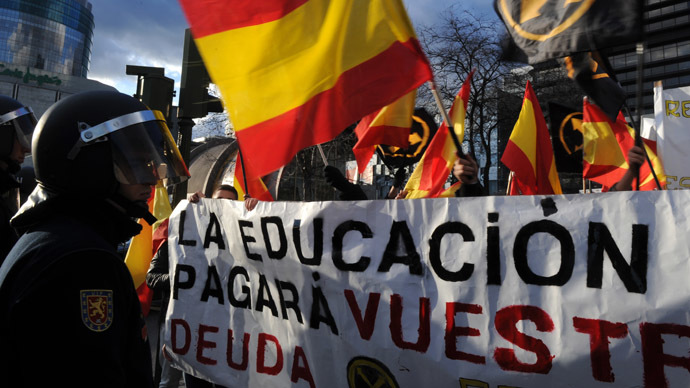Why Russia cares about human rights in the West

Erosion of Western human rights standards runs counter to the interest of building a common democratic space in the Euro-Atlantic.
The Russian Foreign Ministry has recently published its annual report on human rights in the European Union. The paper provides a thorough analysis of the human rights situation in EU countries, focusing on systemic problems such as the growing xenophobia, racism and aggressive nationalism, or else violations of children's rights, police abuse, and the situation in penitentiary systems.
The reaction to the report in the EU, including in the United Kingdom, has been a nervous one. Some people simply discarded it as a kind of a “revenge” by the Kremlin for Western criticism of the human rights situation in Russia itself. Others, in a similar spirit, were asking why Russia actually cares about human rights in the West.
The answer to the latter question is simple: Whatever the media or politicians may claim, Western Europe is the birthplace of the very idea of human rights, and it very much remains the world's leader in human rights promotion and protection. Russia subscribed to universal human rights standards during Soviet times, but it was after the end of the Cold War that our society and our government sincerely embraced that idea as something that we have in common. The new Russian Constitution adopted by referendum in 1993 proclaims that “the human being, his or her rights and freedoms are the supreme value” and that human rights “determine the essence, the content and the application of laws, and the activities of legislative and executive authorities.”
Ironically, after the Iron Curtain was lifted, the claim of the West to be the beacon of democracy and human rights has been steadily eroding. The end to the competition of the two social systems resulted in a perceived Western ideological monopoly and, to continue the economic parallel, monopoly tends to lead to decay and deteriorated standards. CIA “flying prisons”, torture of inmates, widespread child abuse, or the recently revealed Orwellian-scale surveillance practices are among the examples of something that everyone had thought the West had been immune to. And the new economic and geopolitical challenges have brought an unprecedented wave of immigration producing all kinds of xenophobic attitudes, a problem that the West hasn't been able to properly address. Hence the references to pre-WWI nationalism and the authoritarianism between the two World Wars.
There is no Schadenfreude here. The idea is not to point a finger at the West's problems in an attempt to limit criticism aimed at Russia (we do acknowledge our domestic challenges and always welcome constructive criticism and friendly advice). Rather, the strategic aim is to ensure that the West keeps up the torch. If not, then the message will be that human rights are situational, at least not for bad economic times. We care because this impacts the very idea of a common democratic and humanitarian space in the Euro-Atlantic. Is it like post-anything - post-industrial, post-modern - and now post-democratic, or is it an absolute value?
We are witnessing not only a deterioration of human rights standards in the West, but also an extension of the human rights ideology into areas where it borders on challenging other centuries-old social institutions, such as the family. One may recall how early Russian Communists, driven by the idea of a perfect society, decimated the Russian Church and the Russian village, the two cornerstones of our pre-revolutionary society. Today, the human rights ideology is headed towards the same mistakes. Yet the culture of tolerance, inherent in the idea of democracy and human rights, cannot be imposed by intolerant means.
These are the questions asked in Russia, and not only by the authorities, but in society at large, including by those who identify themselves with Western values. That's why we strive to have a balanced, principled yet friendly debate with our Western partners on human rights issues. After all, it is about our common future.
The statements, views and opinions expressed in this column are solely those of the author and do not necessarily represent those of RT.
The statements, views and opinions expressed in this column are solely those of the author and do not necessarily represent those of RT.













